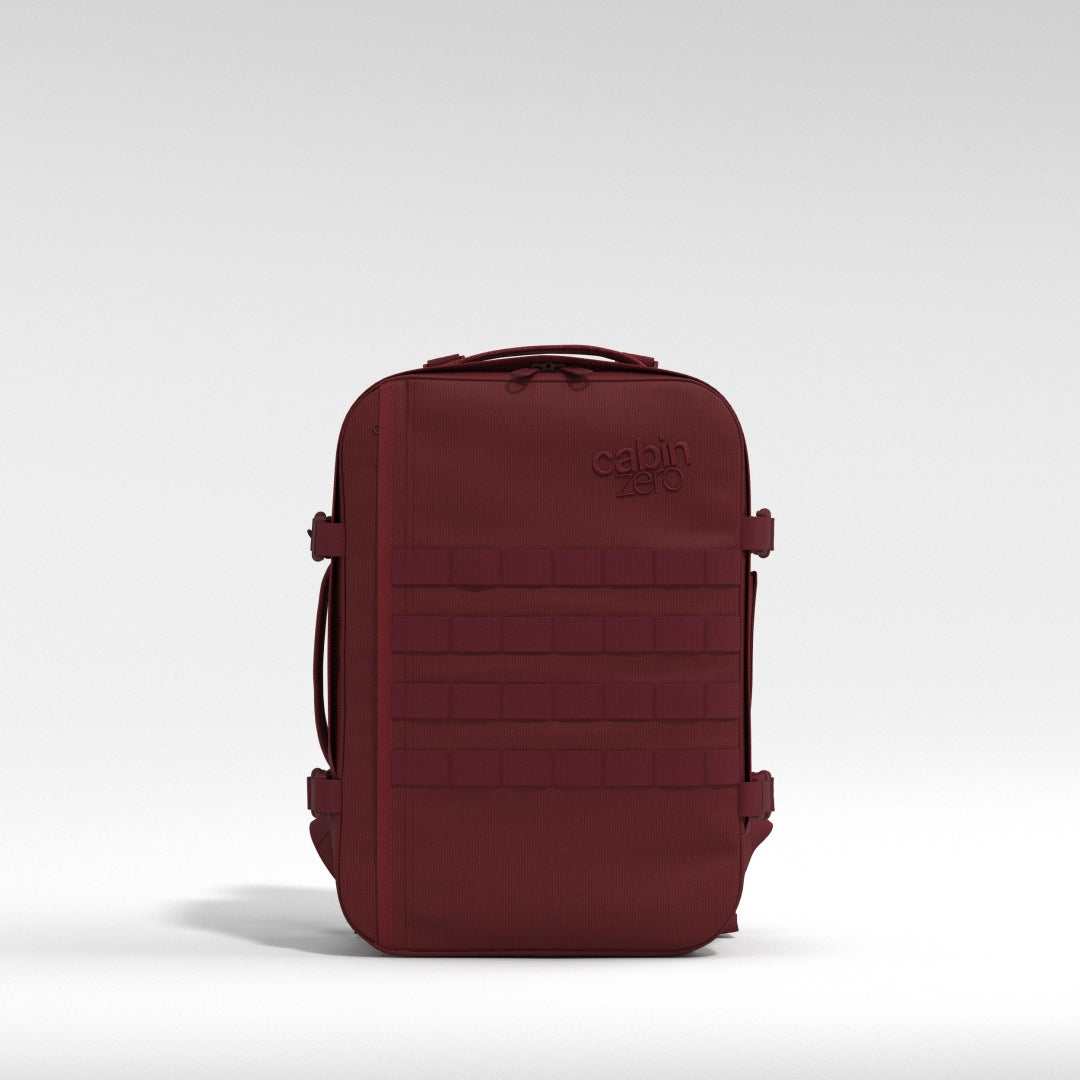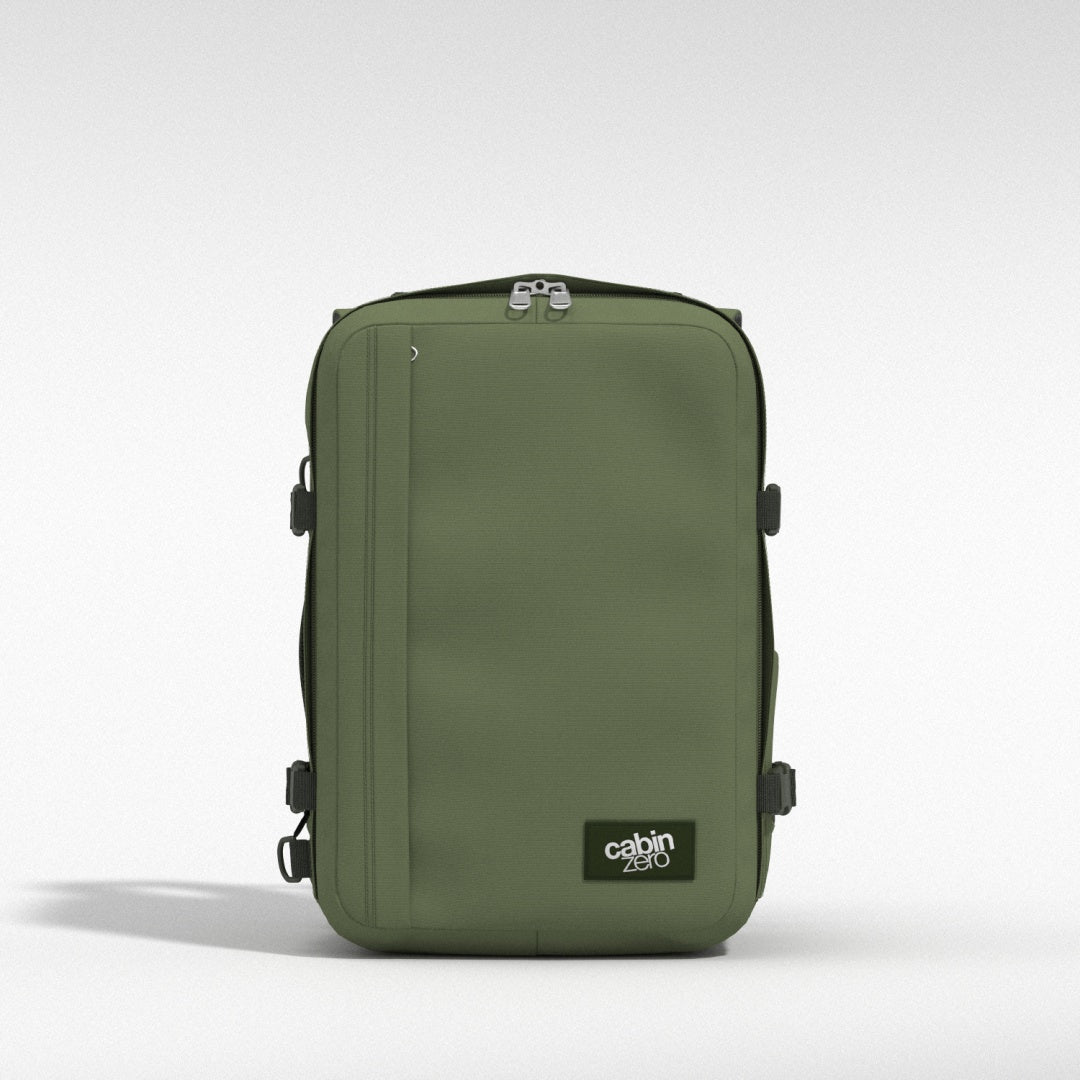CONTENTS
Hostel vs Hotel: Understand The Differences To Make A Wise Choice
When choosing the perfect accommodation for your travels, the tried-and-true hotel option has long been the go-to choice. However, as you delve deeper into your research, you will come across numerous websites and travel guides extolling the virtues of hostels as a viable alternative. With both options providing lodging, it begs the question: What's the difference between Hostel and Hotel?
In this guide, we will embark on a captivating exploration of the distinctive characteristics that set hostels and hotels apart. By unravelling the unique offerings of each, we aim to equip you with the knowledge needed to make an informed decision for your next adventure. So, buckle up and get ready to discover the unconventional world of hostels and hotels!

1. Hostels: An Affordable and Social Experience
A hostel is a type of lodging where guests stay in dormitory-style rooms and share common facilities like kitchens, bathrooms, and common areas. The shared dorm rooms typically have bunk beds, which keeps costs low and creates a friendly and lively atmosphere.
They are typically situated in accessible central areas, close to public transportation, sights, and lively entertainment districts. This convenience location aspect makes it easy for travellers to explore the local area.

Typically, you only need to pay $10 ~ $70 for one night in the hostel. Photo by Marcus Loke on Unsplash
Besides being affordable, hostels offer a range of amenities and services to enhance guests' experiences. You may have access to amenities like free Wi-Fi, group outings, laundry services, luggage storage, and helpful front desk staff available 24/7.
There are many types of hostels available, such as party hostels located near nightlife hotspots, boutique hostels that offer a more upscale experience similar to hotels, and eco-friendly hostels for environmentally conscious travellers.
Some popular hostel chains include YHA (Youth Hostel Association), Generator Hostels, and Rest Up Kathmandu Hostel. Each hostel has its own unique vibe, facilities, and atmosphere, catering to different preferences and travel styles.
2. Hotels: Comfort and Privacy
A hotel is a type of commercial establishment that provides accommodation and various services to visitors. There is a wide range of hotel sizes available, from intimate inns to sprawling complexes.
They typically offer private rooms with beds, bathrooms, and additional features like TVs, minibars, and workstations. Suites and other types of enhanced rooms are sometimes available at upscale hotels.

What do you need to know about the hotel? Photo by zhu difeng on stock.adobe.com
To further improve their customers' stays, hotels offer more than only cosy rooms. Premium services such as luxury hotel spas or fitness centres may require an extra fee.
Other services like housekeeping, room service, concierge assistance, laundry facilities, and on-site dining options like restaurants and bars are often included in package deals or promotions, especially during peak tourism periods.
3. Hostel vs Hotel: A Comparison
Now we will continue with the most important part of the article: a detailed comparison of Hostel vs Hotel. So, let’s take a closer look!
|
Criteria |
Hostel |
Hotel |
Winner |
|
Cost |
Budget-friendly (from $10 to $70 per night) |
Relatively more expensive (from $80 to $1,000+ per night) |
Hostel |
|
Accommodation |
Dormitory-style rooms with bunk beds |
Range of room options, including single, double, suites, and more |
Hotel |
|
Amenities |
Basic facilities and Communal areas (common rooms, kitchen, etc.) |
Extensive amenities and services with on-site bars, fitness centres, pools, etc. |
Hotel |
|
Privacy |
Limited privacy in shared spaces |
Individual rooms provide a higher level of privacy and personal space |
Hotel |
|
Safety |
Lockers CCTV |
Surveillance cameras Key card access systems Trained staff |
Hotel |
|
Atmosphere |
Vibrant, social environment providing opportunities to meet fellow travellers |
Relaxed and quieter with a more private and exclusive ambience |
Tie |
|
Events |
Host various activities (pub crawls, happy beer hours, city tours, etc.) |
Tend to be more business and formal-focused |
Hostel |
3.1. Budget
When it comes to budget considerations, hostels are generally more affordable than hotels. For example, a hostel in a popular tourist destination like Amsterdam may offer dormitory beds for as low as $15 per night. Whereas a hotel in the same area could cost upwards of $100 per night for a private room.

Hostel is an affordable solution and thus popular with backpackers. Photo by Ketut Subiyanto on Pexels
Many hostels are willing to negotiate prices with guests, especially during the low season or if you stay for an extended period. Don't be afraid to ask the host if they can offer a discounted rate, as this can save you a lot of money.
Some hostels offer work-for-stay options, where you can exchange a few hours of work per day, such as cleaning or reception duties, for a free or discounted stay. This can be a great way to save money, meet other travellers, and get a local experience.
This makes hostels particularly appealing to budget-conscious travellers or backpackers who are looking to save money on accommodation expenses.
However, it is always better to compare prices before making a decision. You can easily do this by checking out popular booking sites like Airbnb or Booking.com. Plus, during peak season, prices can fluctuate quite a bit. In fact, you might even find that a hotel is cheaper than a hostel in a busy area!
3.2. Amenities
Hotels generally offer a wider range of amenities compared to hostels, with private bathrooms and in-room amenities such as televisions and mini-fridges.
There are also on-site restaurants, cafes, or feature amenities like fitness centres, swimming pools, spa facilities, and business centres, which can enhance the guest's experience.
Hotels typically provide daily housekeeping services, ensuring that rooms are cleaned and maintained regularly. Additionally, hotels often have 24-hour front desk services, concierge assistance, and room service, further enhancing the guest experience.
In contrast, hostels often have only the necessary amenities. This can include a bed, shared bathroom facilities, and a communal area for socialising and relaxing.
However, to cater to the changing demands of travellers, many hostels are now incorporating additional amenities. One such amenity is the communal kitchen, where guests can prepare their own meals.
This can be a great way to save money on dining out and meet other travellers worldwide. Some hostels also offer free breakfasts, which greatly adds value to guests.
3.3. Privacy

Many people choose hotels for a more private atmosphere. Photo by reisetopia on Unsplash
Hotels offer private rooms with their own bathrooms, which provides guests with a high level of privacy. They also have amenities such as TVs, mini-fridges, and work desks, providing a secluded space to unwind.
Hostels, on the other hand, usually offer shared accommodations where guests share a room with other travellers, ranging from small dormitory-style rooms with bunk beds to larger ones that can accommodate several people.
Although shared accommodations can be an affordable way to meet new people, they may not be ideal for those who value privacy. To address this, many hostels now have innovative designs that provide a level of privacy even within shared spaces.
For instance, pod-style beds are small, enclosed spaces that give guests a sense of personal space and privacy. Other hostels have installed curtains or dividers to separate sleeping areas, allowing guests to create their own private space within a shared room.
In addition to privacy concerns, the level of noise and security can also affect the guest's privacy in both hotels and hostels. Hotels tend to be quieter than hostels, as guests have their own private spaces to retreat to.
Hostels can be noisy, particularly if you're sharing a room with other travellers who may be coming and going at different times of day or night.
However, some hostels have implemented noise-reducing measures such as soundproofing or quiet hours to help ensure a more peaceful environment.
3.4. Safety

Hotels are more secured thanks to the extra staff and CCTVs. Photo by Martin Péchy on Pexels
When deciding between a hotel and a hostel for your travels, safety is an important factor to consider. Hotels typically offer more security measures, including surveillance cameras, key card access systems, and even security personnel.
Hotel staff are often trained in safety and emergency procedures, and hotels may offer additional security features such as in-room safes and 24-hour front desk service. This makes them a better choice for families and those travelling with children.
Hostels typically have shared spaces and may not have the same level of security. They often provide lockers or storage spaces in shared dormitories. These rooms typically have 6 to 10 beds, and it's recommended that you bring your own lock to keep your belongings secure.
However, many hostels now offer lockers or other secure storage options for guests to store their valuables, and some even have 24-hour security or front desk staff to ensure guests' safety.
Although most hostels are equipped with CCTV cameras and on-site staff, you should be cautious when using common areas, especially late at night, and don't leave your belongings unattended.
3.5. Atmosphere
The atmosphere in hostels and hotels can differ significantly, appealing to different types of travellers. Many people love hostels’ vibrant and social atmosphere, encouraging guest interaction and connection.
With communal spaces like lounges, game rooms, or outdoor areas, hostels create opportunities to meet people from different backgrounds, share experiences, and even form friendships. This social aspect particularly appeals to solo travellers or those seeking a more communal travel experience.

The atmosphere in a hostel is generally social, lively, and communal. Photo by charmedlightph on stock.adobe.com
Furthermore, many hostels organise social activities such as pub crawls, walking tours, or movie nights, which can be a great way to explore the local area and meet new people. Hostels also often have a relaxed and informal atmosphere where guests can feel comfortable and at home.
In contrast, hotels focus more on providing a serene and relaxing atmosphere. They are designed to cater to the needs of business travellers, families, or couples looking for a peaceful and private stay.
This can be achieved through features like soundproofing, blackout curtains, and comfortable bedding. Some hotels also offer amenities like spas and wellness centres that promote relaxation and stress relief.
3.6. Events
Hotels tend to be more formal than hostels. They offer a variety of meeting rooms and event spaces that can accommodate small to large groups, providing modern technology and catering services to make professional events a breeze.
For weddings, hotels provide elegant ballrooms, outdoor spaces, and customised services that cater to different wedding styles and sizes. And for charity events, hotels offer a sophisticated atmosphere and catering services that help organisations raise funds and awareness for their cause.
In contrast, the hostel is a great choice for travellers who are looking for a fun and social atmosphere, with events such as pub crawls, movie nights, and game tournaments.
4. Hostel vs Hotel: Which One Should You Choose?

Choose according to your needs. Photo by Rawpixel.com - stock.adobe.com
From our Hostel vs Hotel detailed analysis, we have guided through the 6 most important factors to differentiate them from each other. Now, let’s find out which one is better for you!
You might prefer a hostel if:
- You are a backpacker, solo traveller, student, etc.
- The thrill of meeting new faces and forging lasting connections excites you.
- You thrive in a lively and spirited atmosphere.
- Saving some precious cash on accommodation is a top priority.
You might prefer a hotel if:
- You are travelling as a business traveller, a couple or going with families and children
- Prefer a more private and comfortable accommodation experience, such as room service or car parking.
- Opt for the opportunity to collect hotel points with each stay.
- You need a relaxing and inactive vacation.
CabinZero tips:
Experience always tells the truth about the world. Therefore, you can try both hostels and hotels by booking a hostel for one night and a hotel for the next several nights.
This way, you can meet new people at the hostel and exchange contact information with them while also enjoying the comfort and amenities of a hotel room.
FAQs
1. What Is The Difference Between A Hostel and A Hotel?
Hostels are budget accommodations, usually offering dormitory-style rooms with shared facilities such as bathrooms and kitchens. Hotels, on the other hand, provide private rooms with en-suite bathrooms and often offer additional amenities like room service, a restaurant, or a swimming pool. Hotels are generally more expensive than hostels.
2. Are Hostels Only Suitable For Young Travellers?
No, hostels are not exclusively limited to young travellers. While they are popular among backpackers and young adventurers, people of all ages choose hostels for their affordability and social environment. Some hostels even have private rooms available for individuals or families seeking more privacy.
3. How Do I Book A Hostel Or Hotel?
Hostels and hotels can be booked through various methods. Common options include booking directly through the establishment's website, using online travel agencies (OTAs) such as Booking.com or Expedia, or contacting a travel agent. Comparison websites can help you find the best deals and read reviews from other guests.
4. Can You Find Private Rooms In Hostels?
Yes, many hostels offer private rooms alongside dormitory-style accommodations. Private rooms are more expensive than shared dorms but are still more affordable than hotels. They provide a middle ground for travellers who desire a balance between privacy and socialising.
Final Word
Now you are familiar with the differences between hostels and hotels. Hostels offer an affordable and social environment, appealing to budget-conscious travellers and those who enjoy meeting fellow adventurers. On the other hand, hotels provide comfort, privacy, and a range of amenities, catering to a broader spectrum of travellers.
Consider your priorities, such as budget, desired level of privacy, and the type of amenities you value, when making your decision. Whether searching for the best hotels to stay in Tokyo, Berlin, or a comfortable stay at Seoul hostels for this September, choose the option that best aligns with your needs and preferences, ensuring a comfortable and enjoyable stay throughout your journey. Happy travelling!
Ha Ngan














Leave a comment